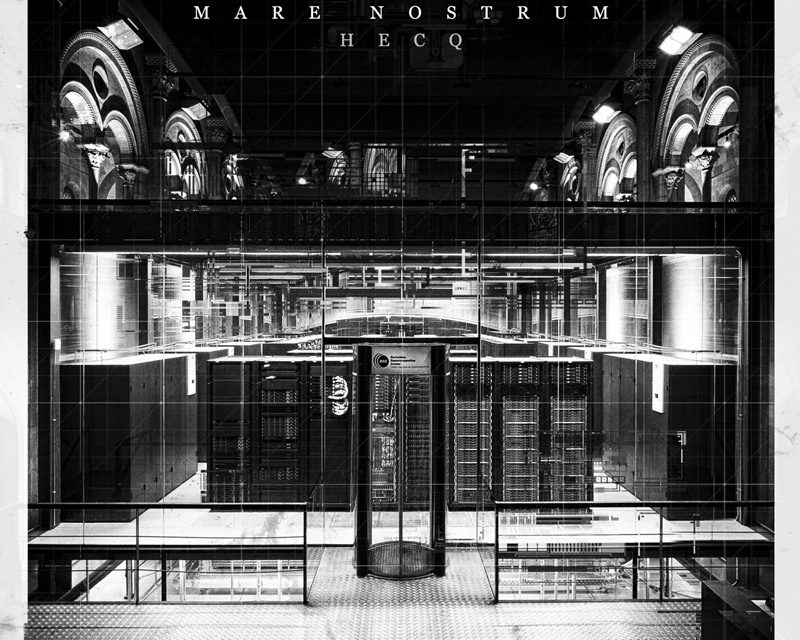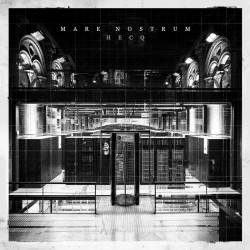Hecq
Mare Nostrum
Hymen Records
Ben Lukas Boysen is a producer’s producer and a sound designer’s sound designer. Between his work for TV and film and albums released under his own name and as Hecq, the Berlin-based artist has carved himself an impressive niche, effortlessly and artfully wending his way through the worlds of technoid, ambient, IDM, bass, and other subcategories of electronic music. Mare Nostrum, his latest for long-time label Hymen Records, proves to be something of a concept piece that puts his specific skillset to the test; all the music on the new LP is composited from field recordings of the titular supercomputer.
The results exist somewhere between found sound recordings and ambient, with each of the records’ four nineteen minute pieces slowly unfolding richly textured collection of noises, some processed and some seemingly bare and direct. As a work of design it’s impressive: while mechanical recordings of various kinds have been a staple of 20th century art music, there’s something specific in Boysen’s approach, a keen understanding of psychoacoustics and how our brain processes sound that is put to good use. While sounds you might expect to hear like drones and clicks aren’t in short supply, there are also plenty of moments where Boysen creates oblique melody and rhythm merely by suggesting the space they might inhabit and outlining it with clever sonic manipulation.
Oddly enough for the level of abstraction involved, the album does a remarkable job of communicating something about the origins of its makeup. As each movement treads the line between totally conceptual and a distinct (if glacial and reserved) musicality, it also creates a context and an understanding within itself. There’s an internal logic that dictates the chattering and and stretching noises that bounce through the stereo spectrum, occasionally colliding with each other or sinking into a deep sea of swirling static, conveying the movement of electrons, the firing of digital synapses and some massive computational exercise in the offing.
Mare Nostrum sounds like what it is, an impressive feat considering its notional essence. With the exception of an intense and varied plucked sequence near its final moments there are very few stretches that don’t exist in a sort of limbo defined by the familiarity of the listener with the the project’s genesis and their own ideas about what constitutes music. It’s fine to appreciate it on the level of a thinkpiece, although far greater rewards are to be found in just accepting its remit and freely exploring its varied contours and vast internal landscapes of noise.






